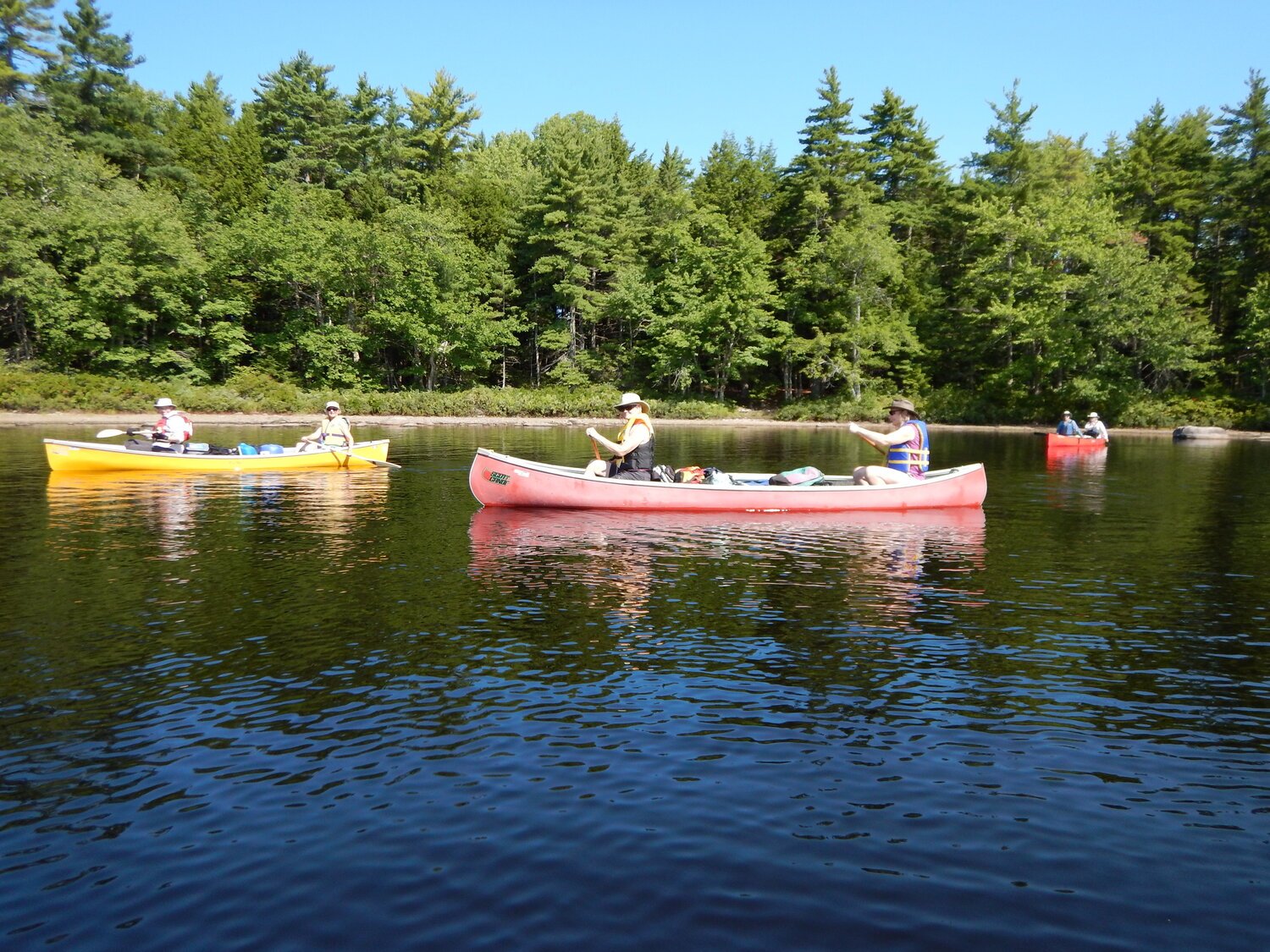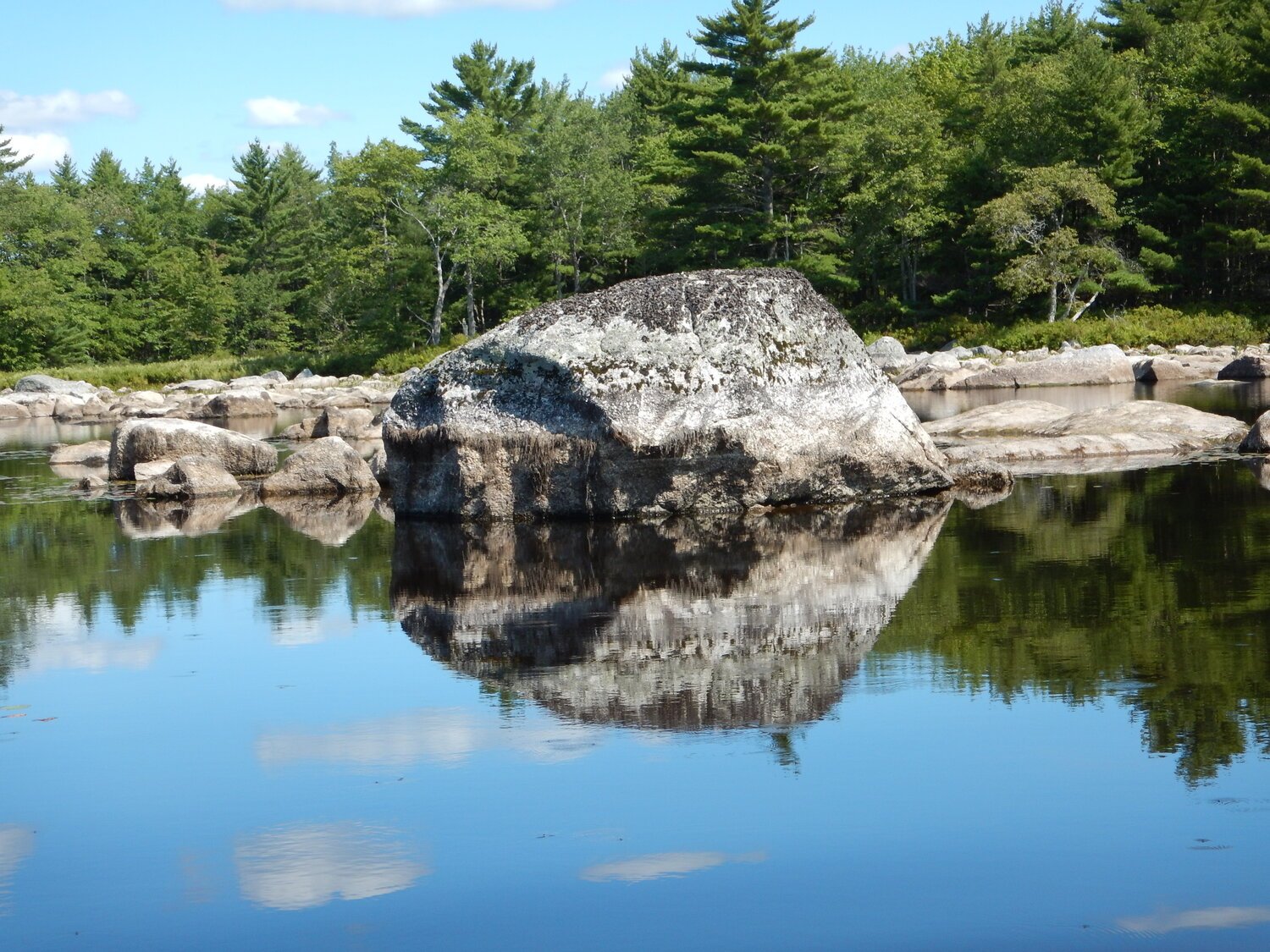Build your confidence on Nova Scotia’s waterways
There’s something special about being around the water that helps the stress of the day melt away. Whether you’re walking on your favourite beach, standing and listening to the waves or taking a dip, moving more in nature is good for us.
There’s a group in Nova Scotia whose volunteer instructors are helping women learn how to safely enjoy being on and around the water. Canoeing allows people to reach parts of our province that would otherwise be inaccessible. Enjoying the outdoor activity also means paddlers stay active while having fun, sightseeing and appreciating what’s in our collective backyard.
Full circle opportunity
Susanne Litke, of Halifax, is a lawyer who’s also been a canoe instructor for nearly 40 years. Susanne grew up on a farm in southern Ontario. She says her love of canoeing started in childhood but didn’t blossom until she was older.
“When we were kids, our family had a canoe. My father would take us on the creek in the back 40. I didn’t get to paddle as a child because at that time it wasn’t something little girls were encouraged to do.”
A sign of the times that is changing because of groups like Becoming an Outdoors Woman (BOW).
Becoming an Outdoors Woman Nova Scotia
Becoming an Outdoors Woman Nova Scotia began in 1997. That’s the same year Susanne started volunteering with the group as a canoe instructor. The group is for women aged 18 and older. Participants learn a range of outdoor skills combined with, “a fellowship experience with women,” according to its website.
“It’s full-circle for me teaching canoeing to women so they have this opportunity,” says Susanne. “I started to really love the activity during summer camp. I remember learning to canoe at Silver Lake Camp near Lake Huron. Those were the most memorable moments of my youth.”
Once an eager student, the veteran instructor is now helping foster and nurture those pivotal experiences for others.
Breaking down barriers
Becoming an Outdoors Woman Nova Scotia helps women overcome barriers so they can access programming.
The group has bursaries available to help women attend classes, which include a variety of activities like fishing, wilderness first aid, backpacking and outdoor cooking.
It’s also helping to break down long-existing gender barriers.
“We still have a gendered world in terms of many outdoor activities,” Susanne says. “It’s limiting when doors are not completely open, whether it’s for women, non-binary or trans folk. It’s empowering to see people learn paddling skills that allow them to control and steer their canoe, to ‘take the stern’ and learn skills which transfer over to other aspects of their lives.”
Inclusivity is key
Offering support, opportunity and inclusivity are key factors for Susanne.
“There are paddling techniques and strategies that can be taught to help us include everyone. Learning the fine-tuning of a stroke, accommodating for a weak knee or a bad back and incorporating hands-on practice lead to amazing results. Canoeing is no longer an intimidating activity,” she says.
“On longer trips, we might have three people on board. The person in the centre may not paddle, but they still enjoy the benefits of being outdoors.”
The joy of being in nature
The instructor enjoys introducing her students to the positive and calming effects of being around water.
“Every summer since 2005, I lead a canoe trip called Women Paddling a Song. For several days, we paddle, sing and eat amazing meals in the wilderness. Most recently, we’ve travelled on the Milford, Nova Scotia lake system, near Kejimkujik National Park and Historic Site. While we’re out there, we may see a turtle sunning on a rock, enjoy a spectacular sunset or watch eagles flying above. It’s serene.”




